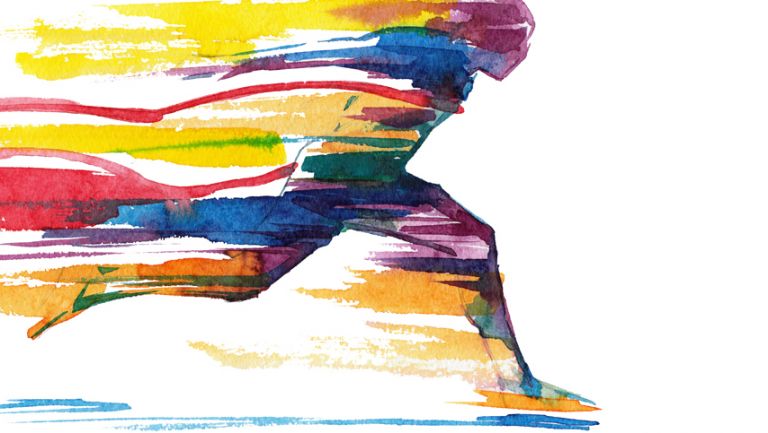Sign up for our monthly newsletter

Australian of the Year reminds us of the power of user voice
When Grace Tame accepted her Australian of the Year Award on Tuesday, she did something that is illegal for many other Australians – she told her own story.
Grace has been fighting alongside the #LetHerSpeak campaign for the overhaul of laws across the country that prevent survivors of sexual assault from publicly identifying themselves, even when the perpetrator has been successfully prosecuted. In 2019 Grace won a two-year legal battle and was granted a court order that allowed her to publicly self-identify. Yet the Tasmanian law that originally prevented her from speaking out remains in place, as does the NT law that has the same effect.

Grace Tame accepting the 2021 Australian of the Year Award. Image source: ABC News
In her powerful acceptance speech, Grace incisively captured why this is so wrong.
“Every voice matters [1],” she avowed, “communication breeds understanding and understanding is the foundation of progress. Lived experience informs structural and social change.”
There couldn’t be a better way to emphasise the importance of the user voice in bringing about change.
The discipline of human centred design brings the voice of lived experience to the fore and is pivotal to create transformative and lasting change. Giving people a seat at the table also demonstrates clearly that they are important, their experience is valid and that as a society we are committed to authentically addressing their needs.
It’s an understanding that continually proves itself. Even when the lived experience is something that is challenging for society to hear, think about and listen to. Hearing about Grace’s story of sexual assault is uncomfortable, but that is even more reason to listen. Empowering people to share their stories is vital and produces demonstrated results.
Around the world, we are seeing governments and organisations turn to the people they are serving to understand more about their experiences. This is a logical approach to dealing with complex issues, however often it can unveil further complexities to unpick. At ThinkPlace, we often refer to the design squiggle. This is the point in the project where it starts to be uncomfortable, challenging and untidy. Answers don’t jump out at us, solutions need to be rigor tested to consider the consequences both up and down stream. It’s hard, it’s messy and it’s critical to unmask the complex realities of the issue, dispel stigma and assumptions, and determine where and how change actually needs to occur.

The Design Squiggle by Damien Newman. © Creative Commons
It is this point where we as designers need to lean in. To work through the discomfort and stay the course. Work hand in hand with our clients, the decision makers and the people who are affected to continually check in.
Transformational change doesn’t happen overnight, it is a series of incremental adjustments to the norm, until a new norm is born
True co-design is more than a buzzword, it is a fundamental understanding that without the four voices, assumptions will fill the gaps and weaken your solution. Transformational change doesn’t happen overnight, it is a series of incremental adjustments to the norm, until a new norm is born.
Assumption is the quicksand in the foundation of design. Creating safe spaces to enable people to share their stories will shore up these foundations and provide a solid structure which will withhold future changes.
Including these voices isn’t just about sitting back and listening. Grace has been incredibly courageous in her fight to tell her story and enabling others too. It’s awe-inspiring. Yet while we celebrate her courage, we need to remember that it shouldn’t have been necessary.

The Four Voices of Design, developed by ThinkPlace and Co-Creative Consulting
People shouldn’t have to be brave to have their voice heard. It is also the responsibility of the broader system – whether that be governments, organisations, or projects – to create space and actively bring the voice of lived experience into rooms where they might not have been before. We need to be critically questioning these support systems, which are often built to protect but in reality oppress.
Sometimes communities are already mobilised and all you need to do to hear their voice is ask. Sometimes the challenge entails some extra design considerations; who is actually missing from a conversation? How can we invite in people who haven’t been invited before? How can we create the conditions that enable our participants to feel safe and share their insights freely and honestly?
Grace Tame has gone above and beyond fighting for meaningful change that affects individuals and society. She has started the conversation, but for lasting change and impact it is up to the wider systems to respond. It won’t be easy, it will be complex and the way forward is through providing a seat at the table for the user voice.
_____________
[1] Read Grace's speech in full at ABC News
Feature Image source: Salty Dingo







